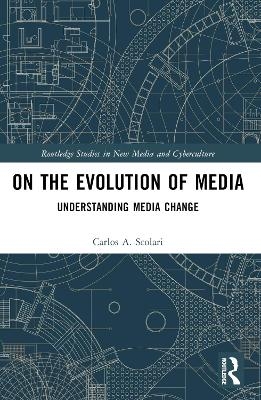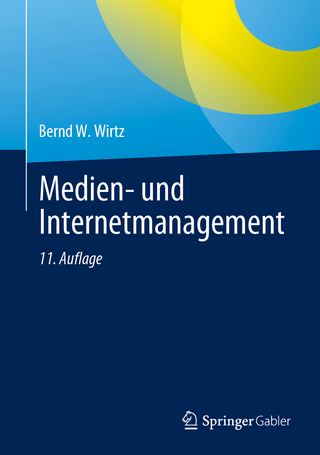
On the Evolution of Media
Understanding Media Change
Seiten
2024
Routledge (Verlag)
978-1-032-10415-7 (ISBN)
Routledge (Verlag)
978-1-032-10415-7 (ISBN)
- Lieferbar (Termin unbekannt)
- Versandkostenfrei innerhalb Deutschlands
- Auch auf Rechnung
- Verfügbarkeit in der Filiale vor Ort prüfen
- Artikel merken
This book describes the lifecycle of media in the context of the media ecology, presenting a general theoretical framework and a series of methodological procedures to support the construction of an eco-evolutionary approach to media change.
Focusing on a series of processes - emergence, competition, dominance, hybridization, adaptation, extinction - this book goes beyond a chronological approach to propose a reticulated and multi-layered conception of media evolution. If media evolution is a network, what are the relationships between "media species" like? What happens when a new media emerges into the media ecology? How do new media influence the old ones? Can media become extinct? How do media adapt when the social and economic context changes? How can media evolution be analysed? What kinds of quantitative and qualitative techniques can be applied in media evolution research?
By presenting an innovative research approach and theoretical framework to media studies, this book will be of keen interest to scholars and graduate students of new media, media history and theory, philosophy of technology, mass communication, and organisational studies.
Focusing on a series of processes - emergence, competition, dominance, hybridization, adaptation, extinction - this book goes beyond a chronological approach to propose a reticulated and multi-layered conception of media evolution. If media evolution is a network, what are the relationships between "media species" like? What happens when a new media emerges into the media ecology? How do new media influence the old ones? Can media become extinct? How do media adapt when the social and economic context changes? How can media evolution be analysed? What kinds of quantitative and qualitative techniques can be applied in media evolution research?
By presenting an innovative research approach and theoretical framework to media studies, this book will be of keen interest to scholars and graduate students of new media, media history and theory, philosophy of technology, mass communication, and organisational studies.
Carlos A. Scolari is Full Professor at Universitat Pompeu Fabra - Barcelona (Spain) and Principal Investigator of TRANSLITERACY (H2020, 2015-18) and PLATCOM (MICINN , 2020-24).
Part I. The rise of an evolutionary approach to media change 1. On the origin of theories 2. Media Evolution: A new theoretical framework Part II. A brief dictionary of Media Evolution 3. Media Life Cycle 4. Emergence 5. Dominance 6. Adaptation 7. Survival / Extinction 8. Niches 9. Intermediality 10. Coevolution Part III. A methodological kit for Media Evolution 11. Media Evolution: quantitative methods 12. Media Evolution: qualitative methods 13. Conclusions. Towards a new discipline
| Erscheinungsdatum | 05.08.2023 |
|---|---|
| Reihe/Serie | Routledge Studies in New Media and Cyberculture |
| Zusatzinfo | 12 Tables, black and white; 6 Line drawings, black and white; 6 Illustrations, black and white |
| Verlagsort | London |
| Sprache | englisch |
| Maße | 156 x 234 mm |
| Themenwelt | Kunst / Musik / Theater |
| Sozialwissenschaften ► Kommunikation / Medien ► Journalistik | |
| Sozialwissenschaften ► Kommunikation / Medien ► Medienwissenschaft | |
| Wirtschaft | |
| ISBN-10 | 1-032-10415-5 / 1032104155 |
| ISBN-13 | 978-1-032-10415-7 / 9781032104157 |
| Zustand | Neuware |
| Haben Sie eine Frage zum Produkt? |
Mehr entdecken
aus dem Bereich
aus dem Bereich


